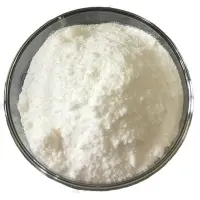-
Categories
-
Pharmaceutical Intermediates
-
Active Pharmaceutical Ingredients
-
Food Additives
- Industrial Coatings
- Agrochemicals
- Dyes and Pigments
- Surfactant
- Flavors and Fragrances
- Chemical Reagents
- Catalyst and Auxiliary
- Natural Products
- Inorganic Chemistry
-
Organic Chemistry
-
Biochemical Engineering
- Analytical Chemistry
-
Cosmetic Ingredient
- Water Treatment Chemical
-
Pharmaceutical Intermediates
Promotion
ECHEMI Mall
Wholesale
Weekly Price
Exhibition
News
-
Trade Service
iNature
KRAS is one of
the most frequently activated oncogenes in human cancer.
Although the role of KRAS mutations in tumorigenesis and tumor maintenance has been extensively studied, the relationship between KRAS and the tumor immune microenvironment is not fully understood
.
On November 22, 2022, Chen Xi, Yan Chao and Yin Rong of Nanjing University jointly published a report entitled "Oncogenic KRAS signaling drives evasion of innate immune surveillance in lung" online in the Journal of Clinical Investigation (IF=19).
adenocarcinoma by activating CD47", which showed that the oncogenic KRAS signaling pathway circumvents innate immune surveillance
in lung adenocarcinoma by activating CD47.
The study discovered a novel role
for KRAS in driving tumors to evade innate immune surveillance.
In samples of lung adenocarcinoma patients and a Kras-driven genetic mouse model of lung cancer, mutant KRAS activated the expression of the anti-phagocytic signal CD47 (CD47) in cancer cells, resulting in a decrease
in the phagocytic ability of macrophages to cancer cells.
Mutant KRAS activates PI3K-STAT3 signaling, inhibits the expression of miR-34a, and alleviates post-transcriptional inhibition
of miR-34a on CD47.
In three separate cohorts of lung cancer patients, KRAS mutation status was positively correlated
with CD47 expression.
Therapeutically, the destruction of the KRAS-CD47 signaling axis byKRAS siRNA, KRASG12C inhibitor AMG 510 or miR-34a mimic inhibited the expression of CD47, enhanced the phagocytic ability of macrophages, and restored innate immune surveillance
.
In conclusion, the results reveal a direct mechanistic link between active KRAS and innate immune evasion, and identify CD47 as a major effector
factor in the KRAS-mediated immunosuppressive tumor microenvironment.
In addition, on July 5, 2022, Chen Xi/Wang Yanbo/Yao Bing of Nanjing University and Feng Zhichun of the General Hospital of the People's Liberation Army of Chinese People's Liberation Army cooperated in Cell Discovery (IF=38) online entitled " microRNAs in aged sperm confer psychiatric symptoms to offspring through causing the dysfunction of estradiol signaling in early embryos ", which reveals a novel mechanism by which microRNAs in sperm in older men cause psychiatric symptoms in offspring by triggering dysfunction of the estradiol signaling pathway in early embryos (click to read).
cancers.
At the molecular level, KRAS proteins with activation mutations cancel GTPase activity and lock onto a highly active state of GTP binding, leading to constitutive activation
of downstream proproproliferation and pro-survival pathways such as RAFMEK-ERK and PI3K-AKT.
Despite 40 years of efforts to develop targeted therapies for the KRAS oncoprotein, AMG 510, a covalent inhibitor of the KRASG12C mutation, was just approved by the FDA in May 2021; Targeting other KRAS mutations is still considered "mission impossible.
"
Understanding how KRAS mutations drive cancer pathogenesis and developing new intervention strategies are major priorities
for overcoming KRAS driving cancer.
Recent advances in the relationship between KRAS mutations and tumor immune evasion may lead to an exciting new direction
.
Tumor cells often overexpress immune checkpoint molecules to evade immune surveillance
.
Programmed death ligand 1 (PD-L1) is two representative checkpoint molecules that are often overexpressed on the surface of cancer cells to signal T cells to evade attack by the adaptive immune system, while differentiated cluster 47 (CD47) is an important anti-phagocytosis signal for macrophages in the innate immune system
.
Recently, Coelho et al.
discovered the function of a novel oncogenic KRAS signaling (mainly KRASG12V mutation) in driving PD-L1 expression in tumor cells, thereby weakening adaptive immune surveillance and promoting tumor growth
.
Canon et al.
also found that the KRASG12C inhibitor AMG 510 can drive anti-tumor immunity
by inhibiting PD-L1 signaling.
While KRAS-mediated evasion of adaptive immune responses is increasingly understood, whether KRAS plays a role in innate immune surveillance has not been elucidated
.
Mechanism pattern diagram (Figure from Journal of Clinical Investigation) The innate immune system plays an important role
in tumor monitoring mainly through the phagocytic activity of macrophages.
In the early stage of tumor formation, macrophages actively infiltrate tumor tissues and phagocytose tumor cells; After that, their phagocytic ability is gradually inhibited
by tumor-derived inhibitory signals.
CD47 is the most studied anti-phagocytosis signal in the tumor microenvironment and is overexpressed
on the surface of many types of cancer cells.
CD47 binds to receptor signaling regulatory protein α (SIRPα) on macrophages to inhibit macrophage-mediated phagocytosis
.
High expression of CD47 in the tumor microenvironment is also associated with
poor prognosis in patients with various cancer types.
In addition, therapeutic blockade of the CD47-SIRPα axis using anti-CD47 monoclonal antibodies has demonstrated efficacy in multiple preclinical models, and clinical trials
are currently underway in leukemia and solid tumors.
However, little is known about the genetic and epigenetic regulation of CD47 expression in cancer cells
.
In this study, the authors found that in the context of lung adenocarcinoma progression, cancer-causing KRAS mutations interact with the innate immune system by promoting tumor cells to evade macrophage phagocytosis
.
The authors also dissected the underlying molecular mechanisms and found that KRAS mutations can directly activate CD47 in cancer cells to inhibit macrophage activity, leading to innate immune evasion and aggressive tumor progression
.
Therefore, the authors propose that KRAS mutational status can be used as a biomarker for anti-CD47 cancer immunotherapy
.
Original link: —END—the content is [iNature].







